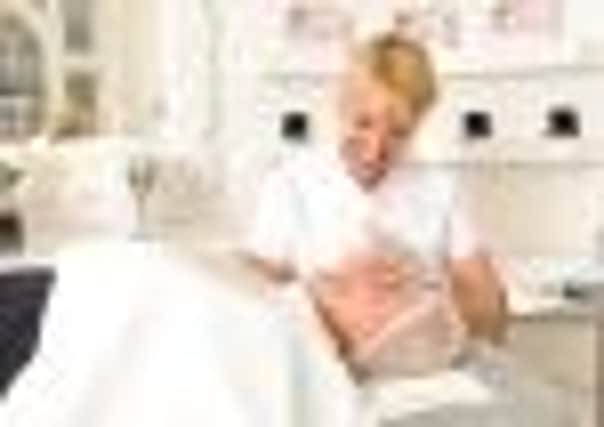Ruth Walker: It’s more than skin-deep, cosmetic tattooing changes lives


For many people, a tattoo is a way of demonstrating individuality or, conversely, membership of some kind of tribe or belief system. For others, it can be life-changing; giving them back a part of themselves that has been cruelly taken away by fire, by disease, by a quirk of fate.
Karen Betts, a make-up artist and hair stylist, taught herself tattooing when she rented part of her building to a tattoo artist. Her earliest attempts were cute little Winnie the Poohs and love hearts – she admits now they were not her finest work. But when, 15 years ago, one of her clients – a woman who had lost her hair during chemotherapy – was willing to let Betts get creative with her neighbour's needle, her career took on a whole new trajectory. “She had lost her eyebrows, so I tattooed them in.
Advertisement
Hide AdAdvertisement
Hide Ad“Then, when she had breast cancer, I tattooed around her nipples after reconstructive surgery. I thought, ‘You know what, there is something to this. I think I could really give people back what they have lost.’”
She travelled to the US to study what was then a fledgling art, learning how to tattoo lips, eyebrows, the eyeline. “Because I could draw, I started designing and creating my own templates, then teaching other people. Gone are the days when people had to have ugly stuck-on eyebrows; now they can have really natural-looking tattooed brows so people don't even know they've had them done.”
There are only around 50 practitioners in the UK with the skill to carry out this kind of advanced work, and Betts has trained many of them through her role as MD of Nouveau Beauty Group, Europe’s largest training centre of permanent make-up. Her talent with the needle has taken her on to television shows such as Big Brother, Extreme Makeover and Ten Years Younger. She has many wealthy clients – among them numerous celebrities – as well as a growing clientele who come to her for medical reasons.
However, probably her most high-profile collaboration is now with Katie Piper, the former model who received agonising facial burns following an acid attack by an ex-boyfriend. Betts saw her on television and immediately felt she could do something to help. Now she is the official permanent make-up consultant for the Katie Piper Foundation. “I knew I could make a big difference and finish off the work the surgeons had done,” says Betts.
“I knew I could give her lip colour back, her brows, her eyes. I could make her feel like a woman again. I approached her and asked her if she would like to come for a consultation and a treatment.”
Piper says now that Betts gave her back her smile, her expression. “It can't abolish scars,” she says, “but it makes you feel the best you can be.”
Soon, Piper introduced more friends, men and women she had met through her charity work, whose entire lives had been scarred by their disfigurement. “I just said to her, ‘I earn so much money doing the cosmetic side of things that I'm happy to give your charity 50 treatments a year – one patient a week can have a treatment.’ Then I'm giving something to these people who have had something taken away from them. I have a gift and can look after them. It really does lift their confidence.”
One client, Nicole, was caught in a house fire so severe it left 97 per cent of her body covered in burns. It seems such a small thing, but her newly tattooed eyebrows have given her her face back. “She has no eyeline,” says Betts, “so I'm going to tattoo that next.”
Advertisement
Hide AdAdvertisement
Hide AdWhen she saw herself in the mirror for the first time, she just sobbed with happiness. But not everyone has such an immediately positive reaction. “When people have been burned or are disfigured for any reason, they look in the mirror and start to accept that's the person they are. When you do something like this, to start with, sometimes they don't always like it. They're used to seeing themselves as they now are. When you change them it can take a bit of time to get used to it; but once they do get used to it, that is who they are.”
I wonder, though, if going back to the cosmetic work – giving the Kardashians of the world a permanent lip-line or dark eyeliner, for instance, to ensure they always look their glamorous best – suddenly seems a little vacuous after making such a difference to people who have barely been able to look at themselves in the mirror? “You can still change people's lives,” she insists.
“You might have a woman who has been plucking her eyebrows for ever, and it takes her half an hour in the morning to pencil them in. She might not go swimming with her children because she doesn't want her eyebrows to come off. Or people who wear contact lenses and can't wear make-up because it irritates their eyes. So, even though that's cosmetic, it's something people have been thinking about for a while.
“But, yes,” she adds, “when I get someone who walks in the door who thinks they're ugly even though they're a size eight and are beautiful, and I've just had a burns patient before them, it makes me appreciate everything I have.”
• www.karenbetts.co.uk